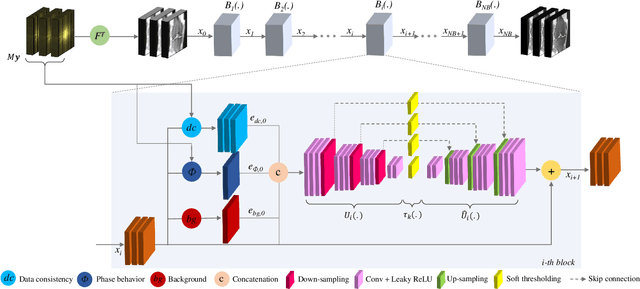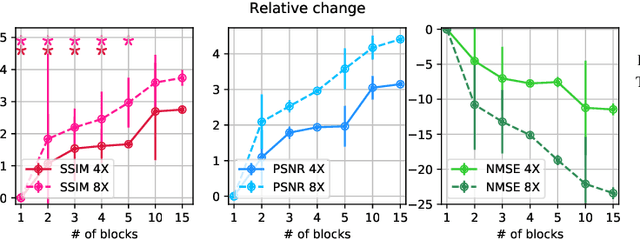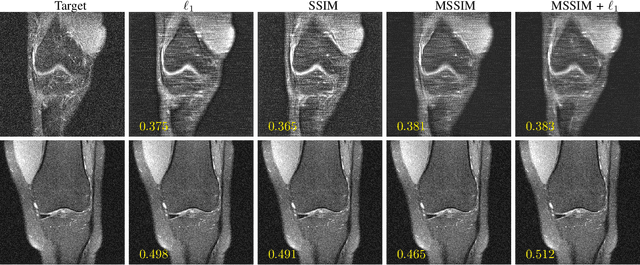Christophe Schülke
An Adaptive Intelligence Algorithm for Undersampled Knee MRI Reconstruction: Application to the 2019 fastMRI Challenge
Apr 15, 2020



Abstract:Adaptive intelligence aims at empowering machine learning techniques with the additional use of domain knowledge. In this work, we present the application of adaptive intelligence to accelerate MR acquisition. Starting from undersampled k-space data, an iterative learning-based reconstruction scheme inspired by compressed sensing theory is used to reconstruct the images. We adopt deep neural networks to refine and correct prior reconstruction assumptions given the training data. The network was trained and tested on a knee MRI dataset from the 2019 fastMRI challenge organized by Facebook AI Research and NYU Langone Health. All submissions to the challenge were initially ranked based on similarity with a known groundtruth, after which the top 4 submissions were evaluated radiologically. Our method was evaluated by the fastMRI organizers on an independent challenge dataset. It ranked #1, shared #1, and #3 on respectively the 8x accelerated multi-coil, the 4x multi-coil, and the 4x single-coil track. This demonstrates the superior performance and wide applicability of the method.
Statistical inference with probabilistic graphical models
Sep 17, 2014



Abstract:These are notes from the lecture of Devavrat Shah given at the autumn school "Statistical Physics, Optimization, Inference, and Message-Passing Algorithms", that took place in Les Houches, France from Monday September 30th, 2013, till Friday October 11th, 2013. The school was organized by Florent Krzakala from UPMC & ENS Paris, Federico Ricci-Tersenghi from La Sapienza Roma, Lenka Zdeborova from CEA Saclay & CNRS, and Riccardo Zecchina from Politecnico Torino. This lecture of Devavrat Shah (MIT) covers the basics of inference and learning. It explains how inference problems are represented within structures known as graphical models. The theoretical basis of the belief propagation algorithm is then explained and derived. This lecture sets the stage for generalizations and applications of message passing algorithms.
 Add to Chrome
Add to Chrome Add to Firefox
Add to Firefox Add to Edge
Add to Edge